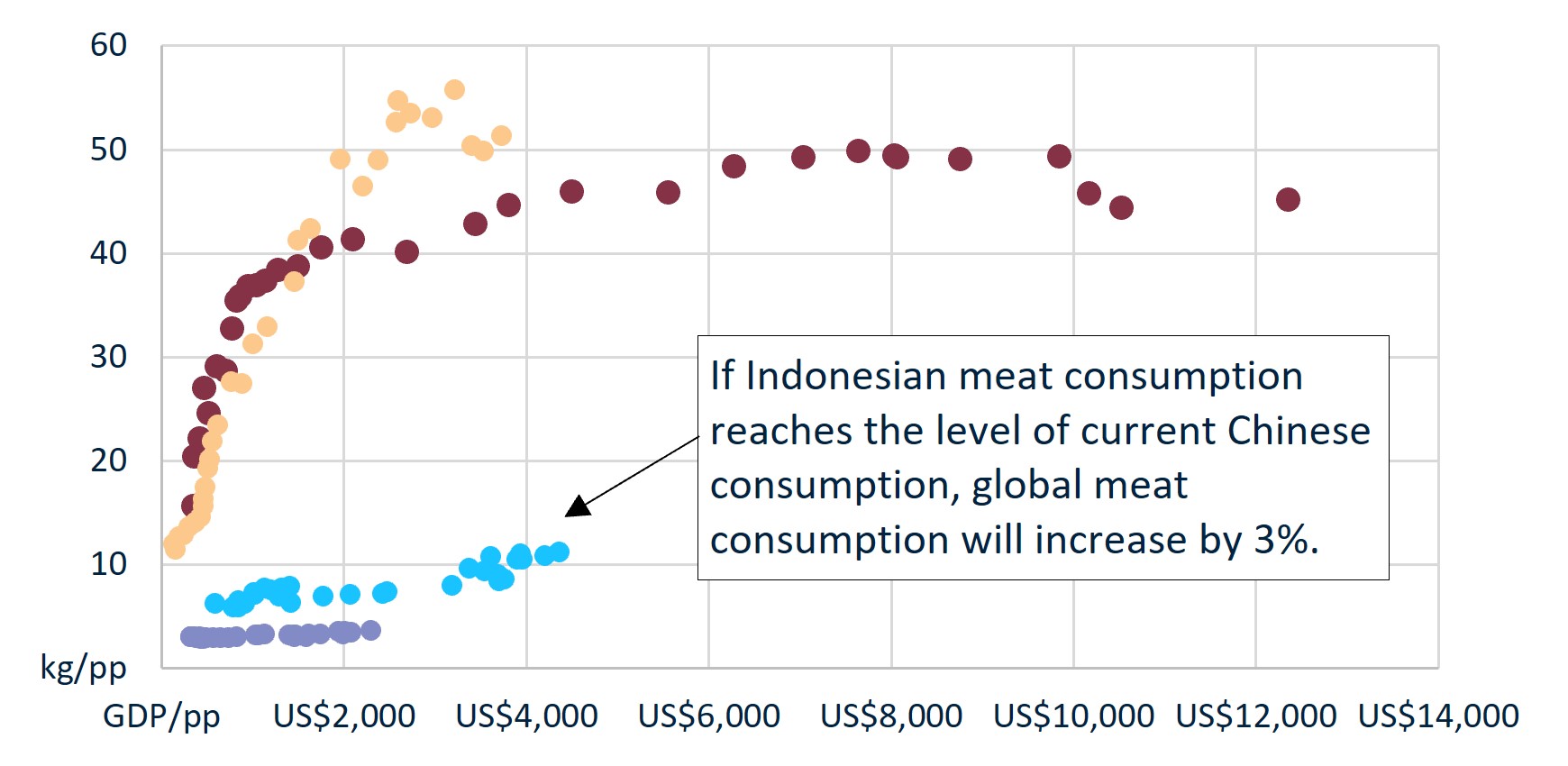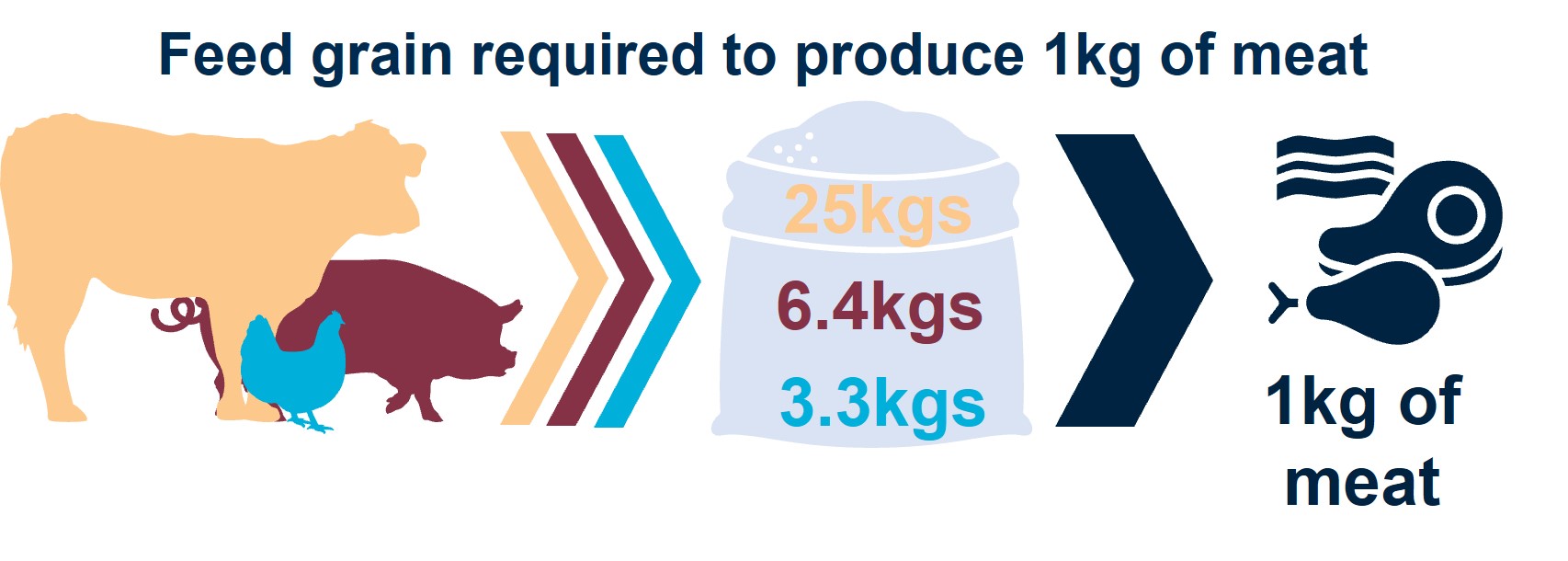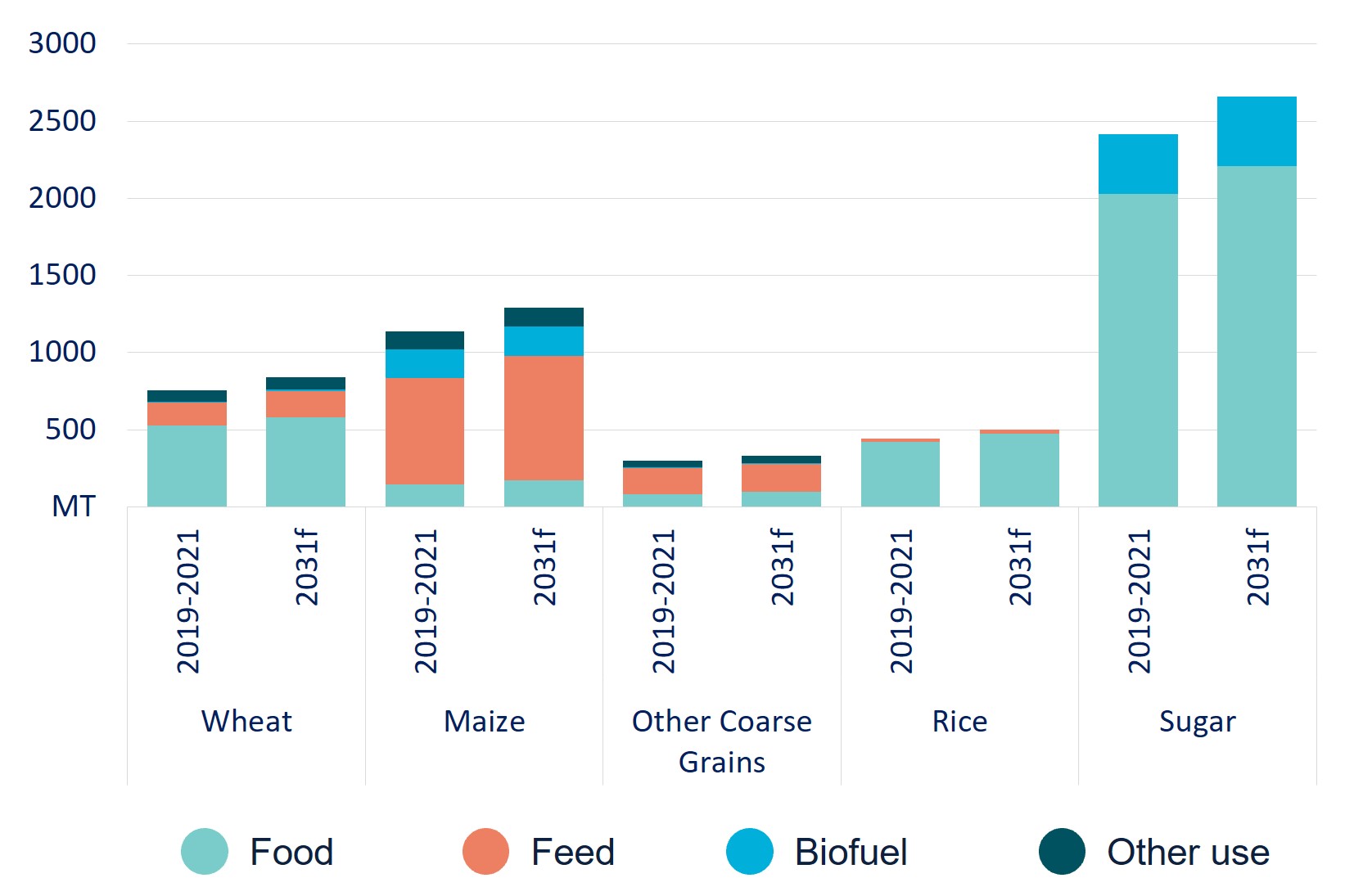Growing demand for meat and biofuels will drive global demand for grains and oilseeds over the coming decade. Ongoing adaption and productivity gains will be required for Australian farmers to fully benefit from this growing market.
Prices of grain and oilseeds have been rising
- Russia’s invasion of Ukraine and poor seasonal conditions in North America led to spikes in world grain and oilseed prices in May 2022. Prices have moderated in recent months but remain historically high.
- Long-term factors, especially demand for animal feed and biofuels, are likely to increase the global demand for grains and oilseeds over the next decade.
- Farm productivity, the rate of meat demand growth, and government biofuel policies will influence future price and availability of grains.
Figure 1: Meat consumption and GDP per person, selected countries, 1990 to 2021
Higher incomes lead to increased demand for feed grain
- As countries get wealthier, meat consumption tends to increase.
- Much of the world’s livestock are fed grain. Higher meat consumption leads to increased demand for grain-based animal feed.
- Livestock production is grain intensive. This means relatively more grain is required when people consume calories via grain-fed animals than when consuming grain directly.
- For example, it takes an average of 25kgs of grain to produce 1kg of beef.
- Figure 1 shows the relationship between GDP per person and meat consumption per person.
- Meat demand in China and Vietnam has increased dramatically since 1990, but remains around half the per capita consumption in Australia.
- Economic growth in several high-populace countries, such as India and Indonesia, will drive future global demand for meat and feed grains.
Figure 2: Global use of grains, 2019 to 2031f
f: forecast
The impact of increased biofuel demand
- Over the last 3 decades, biofuels have become an increasingly important source of energy.
- Transportation is the largest consumer of biofuels, predominantly through blending with petrol and diesel.
- There are 2 main types of biofuels:
- Ethanol, usually produced from grains such as corn, sugar and wheat.
- Biodiesel, usually produced from oilseeds such as soybean oil, palm oil and canola oil.
- Biofuel demand is closely related to government policies that mandate or encourage biofuel use. The energy policies of large petrol/diesel consumers, such as the US, EU, India and China, will substantially effect grain and oilseed demand.
- Other factors will also influence demand, including the development of second generation biofuels and the relative price of grains and oilseeds compared to other energy sources.
Outlook for global grain demand
- Growing demand for meat and biofuels, will support strong grain and oilseed prices.
- Global food prices and availability will depend on the ability of farmers to continue the long-term trend of improved agricultural productivity.
- Australian farmers have a proven track record of adjusting to new climactic and trade conditions. Further adaption and productivity gains will be required for Australian farmers to fully benefit from increased global grain and oilseed demand.
Download
Grain demand: The impact of meat consumption and biofuels (PDF)
Grain demand: The impact of meat consumption and biofuels (Word)
Connect with us
Follow our @AusAgTrade Twitter account for all your #TradeTips and Market Intel.
Subscribe to our monthly Agriculture Market Intelligence Insights newsletter.







